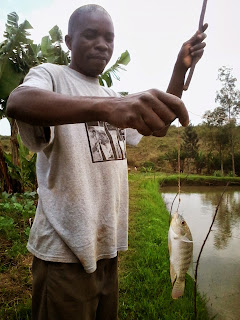 A sufficient, clean drinking water supply is essential to
life. Millions throughout the world still do not have access to the basic
necessity. After decades of works by governments and organizations to bring
portable water to the poorer people of the world, the situation is still dire.
A sufficient, clean drinking water supply is essential to
life. Millions throughout the world still do not have access to the basic
necessity. After decades of works by governments and organizations to bring
portable water to the poorer people of the world, the situation is still dire.
As a measure towards this complexity, rainwater harvesting
is an option than has been adopted in many areas of the world where
conventional water supply systems have failed to meet people need. It is a
technique that has been used since antiquity.
 Looking at the high number of wasted decilitres running
along our roadside tunnels, I simply sympathize with our people and their leaders.
If you think these are personal opinions, then watch this space again come February
where all our headlines will be reading severe droughts and deaths.
Looking at the high number of wasted decilitres running
along our roadside tunnels, I simply sympathize with our people and their leaders.
If you think these are personal opinions, then watch this space again come February
where all our headlines will be reading severe droughts and deaths.
I would
like to urge all the stakeholders with inclusion of the communities to take an
advantage of this prime time and advocate for rainwater harvesting.
 Let the communities not rely on the government to initiate
some of these projects like the earth dams or even placing gutters on their
roofs, we can always begin small and as a team we spread our wings to the
desired dreams. Water is life; with its presence, we can make all our dreams
come true.
Let the communities not rely on the government to initiate
some of these projects like the earth dams or even placing gutters on their
roofs, we can always begin small and as a team we spread our wings to the
desired dreams. Water is life; with its presence, we can make all our dreams
come true.
